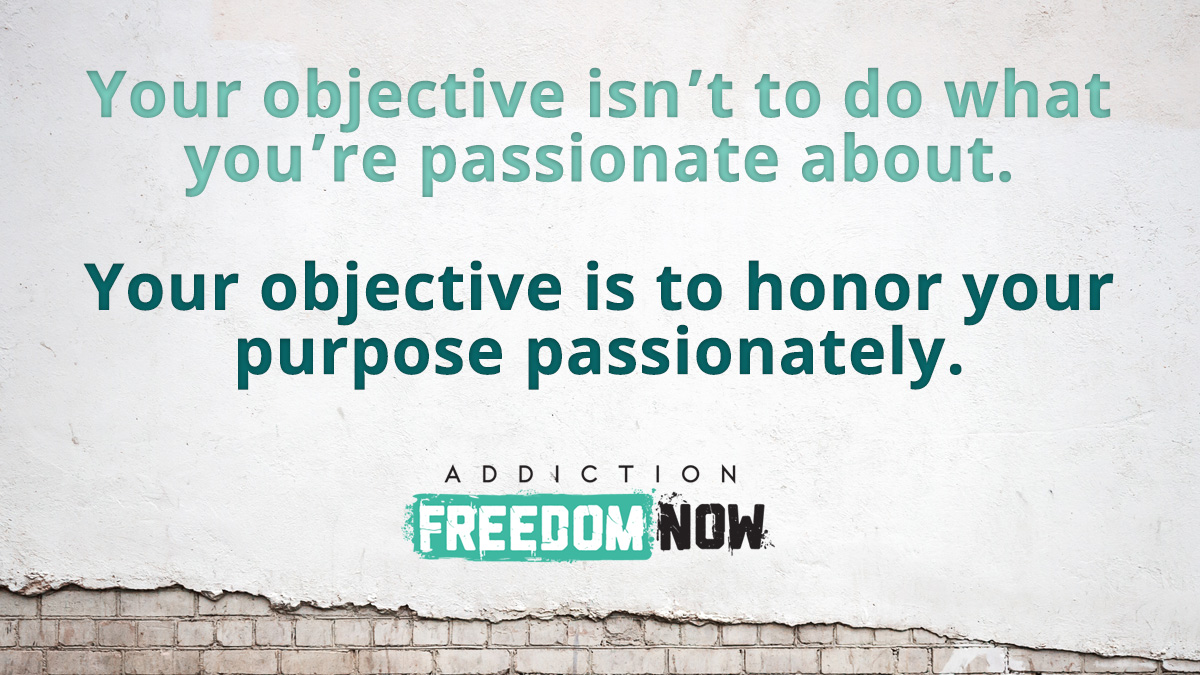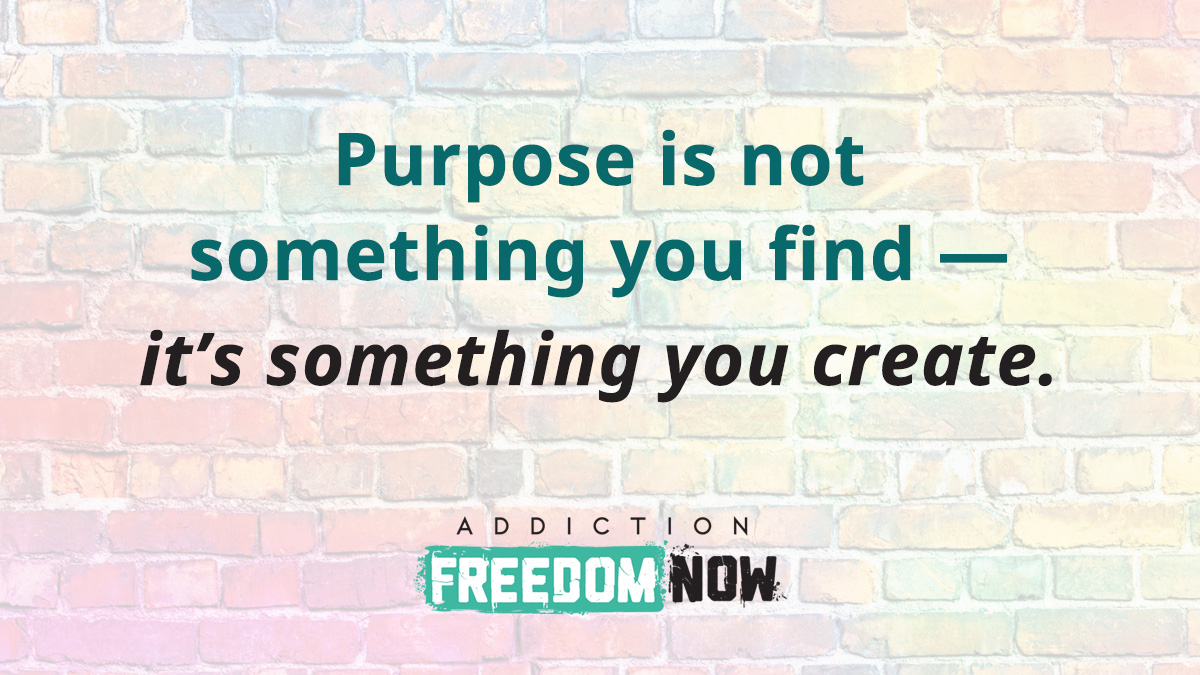Substance abuse recovery comes with its share of hurdles. However, living a life of passion can give you a way to escape addiction’s dangerous clutches and transform your life. But what exactly is passion, and why is it a vital part of your recovery?
Passion is an inner love that ignites the spirit and motivates you to live a life full of joy and purpose. Developing a life of passion helps you to stay engaged in your recovery and find contentment in healthy activities. Even better, everyone is capable of discovering their passions—no matter who they are, and where they are in their life or recovery journey.
Of course, passion doesn’t come from just one place. You can find your passion in your talents, interests, core values, skills, and strengths. Finding passion can be especially useful if you’re someone who has gone through difficult life experiences, such as addiction to drugs and alcohol. Living a life of passion is a way to avoid the demons that led to your addiction—things like indecision, doubt, procrastination, and fear.
As many of us have realized, there are more than a few benefits to living a passionate life. Aside from helping you to avoid the slippery slopes that can lead to relapse, you might also find that it helps you sharpen life skills and creates a healthy balance in life. Passion is a key tactic to achieving better well-being. Along with the boost to physical health and wellness that sobriety brings, passion can lead to stronger relationships in the home and workplace.
When you go about finding your passion in recovery, you’ll need to be willing to maintain your new sober lifestyle. On top of this, you’ll need the motivation, authenticity, and discipline to be open to new activities—that’s the only way you can discover the things that bring you true happiness. Many individuals find their passion in the rediscovery of dreams they had given up on. Still, others see recovery as an exciting time to step outside their comfort zone and try new activities or experiences.
Leading a Purposeful Life

Finding your passion and choosing to live a purposeful life is essential to maintaining your sobriety and staying motivated to avoid relapse. This is how you can keep yourself grounded, considering it isn’t always easy to re-engage with the world around you, post-treatment. Living life with passion is an important step to finding a sense of purpose. Then, this sense of purpose will keep you focused on your recovery.
What’s My Purpose in Life, and How Do I Find It?
We definitely get it—it’s never easy answering this question. Before you can even begin responding, you’ll need to delve into why living a life of purpose matters to you on a personal level. After discovering your purpose, what are you hoping to achieve? What do your values and goals look like, right now? Where do you see yourself in the future?
Once you figure out why you’re searching for a purpose, you’ll be able to create a plan of action based on your personal values.
There are many ways that you can go about this, including:
- Keeping a written record of the things you are grateful for.
- Keeping a visual record of your feelings by drawing or painting.
- Or, even becoming involved with a religious organization, such as a synagogue, mosque, or church if spirituality and faith are your most meaningful values.
As soon as you’ve established your purpose, you’ll have a clearer idea of what actions and activities you’ll need to do, in order to get there. Aligning yourself with a higher purpose will help you discover your passions in life.
Many individuals in recovery find purpose by filling their daily routine with activities like yoga or meditation. Daily activities like this give your life value and meaning. Or, you could start by embarking on a new career, volunteering with a non-profit or community organization that is important to you, and exploring new hobbies.
A Strong Support Network Is Key
Developing a connection with your peers and counselors is vital as you find your passion and define your purpose in life. If you have completed treatment at an in-patient facility, it’s a great idea to seek continued support as you re-enter the outside world. One of the best ways to find the support you need is through 12-step program meetings. The relationships you will forge with peers in these groups will help you stay in check and learn to use the recovery tools you have acquired in your daily life.
When you stay involved in groups like Alcoholics Anonymous or NA, they provide the structure you need to begin living a purposeful life. Your peers will provide the empathy and support that is necessary to validate your journey and sustain your recovery. In addition to sober social activities, groups like this help to relieve stress and improve your quality of life.
How Do You Discover Your Passion?

If you have passion in your life, it’s easier to become more engaged with the world around you and maintain social connections as you grow more confident. Still, finding your passion is rarely simple, whether or not you’re in recovery.
The lifestyle change you are going through in recovery is one that requires a great deal of patience, and at times you’ll need to push yourself to keep going in the right direction. But, you’ll find that the changes you’re making will be very rewarding, in the long-run. Through discovering passion and joy outside of addition, you’ll find a sense of courage that you never knew during active addiction.
If you’re searching for your passion, a great first step is to remember the activities that brought you joy before your drug or alcohol dependency. The things that most interested you and created excitement in your life are often activities that still inspire passion. Some of these things may have included learning a hobby or a new language, traveling, building your own business, or any number of other activities—as long as it was healthy and made you a happier, more energized person.
Once you discover something that excites you and brings you happiness, make that activity part of your daily routine, and allow it to spark your soul.
Tips and Tricks to Finding Your Passion
Maybe you have no idea where to start when it comes to discovering your passion.
Well, in that case, here are some ideas to set you on the right track:
- What do you already love doing? Any activities or hobbies, in particular? What has brought you joy or catharsis, in the past?
- Sit down, grab a sheet of paper, and start brain-dumping—write down whatever ideas come to mind, no matter how disorganized the list is. No self-judgment, either.
- Talk to others about their own passions, and their journeys to discovering them. This can be anyone, no matter how different their passions are from your own. It’s about the journey.
- Don’t let your search lead to impulsive actions, like quitting your job to pursue something new. There’s nothing wrong with taking it slow and focusing inward.
- If you find a promising activity, spend time practicing. Don’t quit—you could miss out on discovering your passion by quitting. Again, avoid self-judgment.
You Can Create Passion Out of Your Pain—Yes, Really
Depending on where you are on your road to recovery, you may have familiarized yourself with your triggers. Learning to cope with triggers is a huge part of becoming self-aware.
Triggers are rooted in painful memories. However, that doesn’t mean you can’t transform triggers into a tool, allowing them to inspire creativity. Journaling is an activity that many individuals find to be therapeutic, as it helps to reveal buried emotions and provides insight into the beliefs you hold at your core.
If you’re hoping to reflect on your trauma productively (and better understand your own thought process), then journaling is a good place to start.
Many hobbies help curb substance cravings, and journaling is a prime example. Another way to find passion in your pain is by sharing your memories with trusted individuals. Allow this to evolve into a conversation about how these memories still affect you, and you may find healing in the discussion.
Many other activities can help individuals in recovery to become mindful of emotions, both positive and negative, so that they can process those feelings in a healthy way. Some creative outlets include public speaking, writing stories or poetry, and creating visual art.
As a bonus, when you advocate for a cause that you believe in through speaking, creating art, or volunteering, you are using your passion in a healthy way that can also inspire others who are struggling.
Overcoming Fear

One of the biggest fears that individuals face when they begin a program of recovery is that their life will be vastly different without drugs and alcohol. Sadly, this obstacle is one of the primary hurdles to finding passion and living your truth.
That said, the fear of change is one that you must find a way to let go of. Otherwise, it’ll be impossible to find authenticity in your life and live with purpose and passion. You must trust in yourself, trust in others, and trust in the natural ebb and flow of life. Let change happen, and embrace it whenever you can. This will help to keep your passion strong.
Letting go of fear is challenging, but once you do, you’ll learn to face each day with a renewed sense of hope. You’ll find it easier than ever to remain present and open-minded. When you step outside your comfort zone, you begin to grow and find new happiness.
In order to push yourself outside that comfort zone, you must maintain a positive attitude and believe in yourself. When you dwell in self-doubt, you have a higher chance of failure in the changes you are making. A strong support network from a 12-Step program, such as Narcotics Anonymous or Alcoholics Anonymous, is a vital tool in warding off self-doubt and fear.
How Your Passion Helps You Stay Sober
Living a purposeful, passionate life means creating a life that you love. As you begin to find joy in all of your daily activities, you realize that this passion is one of the motivating factors to staying sober.
Life often throws curve balls your way, but when you live a life of passion, you’re better equipped to overcome the hurdles. A lack of passion in your life can allow you to fall prey to the trappings of disappointment, frustration, and anger. Recovery isn’t a one-size-fits-all experience, and it can be adapted to suit your unique needs and life situation. This freedom allows you to create a positive, authentic life that fits your needs and inspires purpose and passion.
As you gain an awareness and understanding of yourself, you begin to love yourself more fully. This is a key to your sobriety, because living a life of passion requires loving yourself. This self-love is deeply intertwined with the self-knowledge you gain through group and individual therapy.
It allows you to take a close look at the negative life choices you have made—and then, move on from them. When you are in recovery, self-love can help you to forgive yourself and others who have hurt you. Healing these emotional wounds is crucial to your own self-acceptance and maintaining your sobriety.
When you are able to examine your past and confidently accept it, you’ve found closure. Fully understanding yourself and being able to forgive yourself for the damage addiction caused is crucial to your long-term sobriety. The gratitude that you experience when you perceive yourself in a positive light ignites a passion that you will experience every day.
Moving on With a Sense of Purpose

Once you gain an understanding of what your passion is, how to develop a purpose in life, and how this can help you to stay focused on sobriety, adjusting to a lifestyle free of drugs and alcohol becomes less overwhelming.




